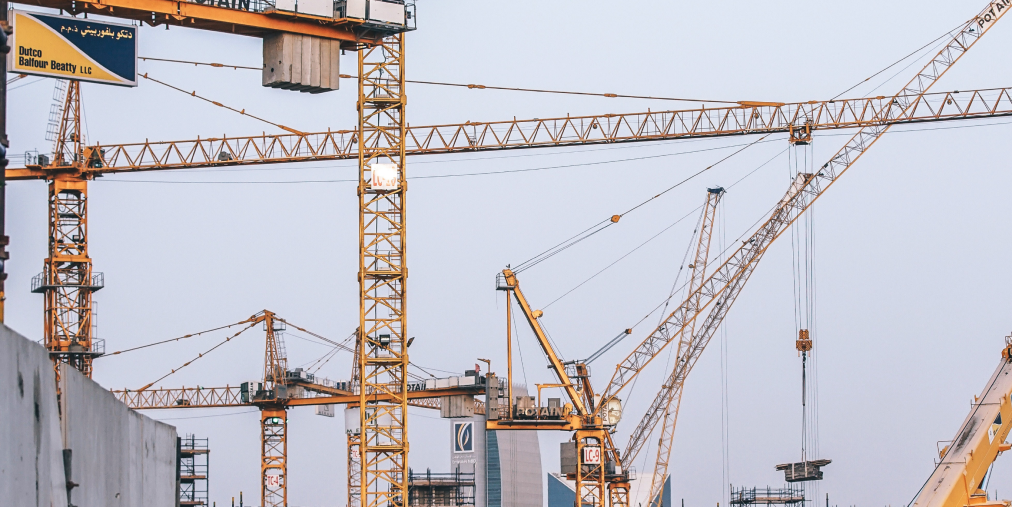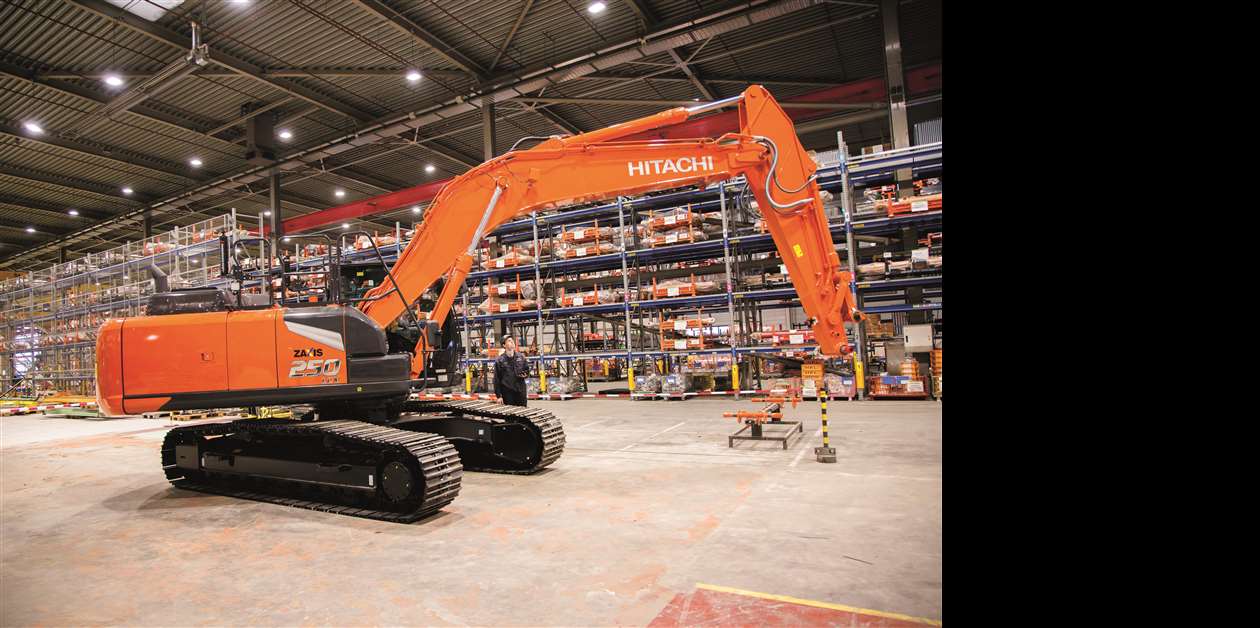Forklift Rental in Tuscaloosa, AL: Versatile Training Solutions for Your Demands
Wiki Article
Exploring the Financial Perks of Renting Building Equipment Contrasted to Having It Long-Term
The decision between having and renting out building devices is critical for monetary administration in the sector. Renting out deals prompt cost financial savings and functional versatility, allowing firms to assign sources a lot more efficiently. Recognizing these nuances is crucial, especially when taking into consideration how they straighten with particular project requirements and economic methods.
Expense Comparison: Leasing Vs. Possessing
When reviewing the monetary effects of leasing versus possessing building and construction devices, a detailed price comparison is vital for making notified choices. The selection between having and renting can significantly affect a firm's profits, and recognizing the linked prices is crucial.Leasing construction equipment commonly involves lower upfront prices, allowing services to allocate funding to other functional demands. Rental costs can accumulate over time, possibly exceeding the expenditure of possession if tools is required for a prolonged period.
On the other hand, owning construction tools requires a substantial initial financial investment, together with continuous costs such as insurance, funding, and devaluation. While ownership can lead to lasting cost savings, it likewise binds resources and might not provide the same degree of flexibility as renting. Furthermore, having equipment necessitates a dedication to its application, which may not constantly straighten with project needs.
Ultimately, the choice to have or rent out ought to be based on an extensive analysis of details task requirements, financial ability, and lasting tactical objectives.

Upkeep Obligations and costs
The option between having and renting building and construction devices not only includes financial factors to consider but likewise incorporates recurring maintenance expenditures and obligations. Owning equipment requires a substantial dedication to its upkeep, which consists of routine examinations, repair work, and prospective upgrades. These duties can quickly build up, leading to unexpected expenses that can strain a spending plan.In comparison, when renting tools, maintenance is typically the duty of the rental firm. This plan allows specialists to prevent the economic concern connected with deterioration, in addition to the logistical obstacles of organizing fixings. Rental agreements commonly include stipulations for upkeep, indicating that specialists can concentrate on finishing projects instead than fretting concerning tools problem.
Furthermore, the diverse series of equipment offered for rent allows companies to pick the most up to date models with innovative modern technology, which can boost performance and productivity - scissor lift rental in Tuscaloosa, AL. By selecting leasings, companies can avoid the long-term liability of tools depreciation and the connected upkeep frustrations. Eventually, evaluating upkeep costs and obligations is essential for making a notified choice concerning whether to own or lease building and construction tools, dramatically affecting general job costs and operational efficiency

Devaluation Effect on Ownership
A significant aspect to think about in the decision to have construction equipment is the impact of devaluation on general possession prices. Devaluation represents the decrease in worth of the tools over time, affected by elements such as usage, wear and tear, and developments in innovation. As devices ages, its market price decreases, which can considerably affect the owner's financial placement when it comes time to market or trade the devices.
For construction business, this devaluation can translate to significant losses if the tools is not made use of to its fullest capacity or if it becomes obsolete. Proprietors must represent devaluation in their monetary projections, which can lead to greater general costs compared to renting. Furthermore, the tax implications of devaluation can be complicated; while it might supply some tax advantages, these are usually balanced out by the reality of lowered resale value.
Ultimately, the worry of depreciation stresses the significance of understanding the lasting financial dedication associated with possessing building and construction equipment. Firms should meticulously assess just how typically they will certainly utilize the tools and the potential economic effect of depreciation to make an educated choice regarding possession versus renting.
Monetary Adaptability of Leasing
Renting out construction devices supplies significant monetary flexibility, allowing business to allot sources much more effectively. This flexibility is particularly vital in an industry characterized by changing task needs and varying workloads. By choosing to rent out, businesses can prevent the significant capital investment required for acquiring tools, preserving money circulation for various other functional demands.Additionally, leasing devices allows firms to customize their equipment choices to particular job needs without the long-term dedication associated with ownership. This means that companies can quickly scale their devices stock up or down based upon awaited and existing task needs. Consequently, this versatility minimizes the danger of over-investment in equipment that may come to be underutilized or outdated in time.
An additional financial advantage of leasing is the capacity for tax obligation advantages. Rental repayments are usually thought about operating budget, enabling immediate tax deductions, unlike devaluation on owned devices, which is topped numerous years. scissor lift rental in Tuscaloosa, AL. This prompt expense recognition can additionally enhance a company's cash money setting
Long-Term Task Considerations
When reviewing the lasting requirements of a construction organization, the choice between possessing and leasing devices comes to be much more intricate. Key variables to think about consist of project duration, regularity of usage, and the nature of upcoming jobs. For jobs with prolonged timelines, purchasing tools may appear beneficial as a result of the possibility for reduced overall prices. Nevertheless, if the tools will not be used constantly throughout projects, owning might lead to underutilization and unnecessary expenditure on storage, maintenance, and insurance.The building industry is developing rapidly, with brand-new tools offering improved effectiveness and safety features. This adaptability is specifically helpful for services that deal with diverse tasks calling for different types of tools.
Furthermore, monetary stability plays a vital role. Possessing devices typically entails substantial capital expense and devaluation worries, while renting permits for even more predictable budgeting and cash money circulation. scissor lift rental in Tuscaloosa Ultimately, the selection in between possessing and renting needs to be lined up with the strategic purposes of the building business, thinking about both current and awaited project needs.
Conclusion
To conclude, leasing construction devices offers significant financial benefits over long-term possession. The decreased in advance prices, elimination of upkeep obligations, and evasion of depreciation add to improved cash money flow and monetary adaptability. scissor lift rental in Tuscaloosa, AL. Additionally, rental settlements function as immediate tax obligation deductions, further profiting service providers. Ultimately, the decision to rent out instead of own aligns with the dynamic nature of building and construction projects, permitting versatility and accessibility to the most up to date devices without the monetary worries associated with ownership.As tools ages, its market worth diminishes, which can considerably affect the owner's financial position when it comes time to sell or trade the equipment.
Renting out building and construction tools supplies substantial economic versatility, permitting business to designate resources much more effectively.Furthermore, renting equipment makes it possible for firms to customize their devices choices to specific project demands without the lasting dedication connected with ownership.In verdict, renting out building devices offers significant monetary advantages over long-term possession. Eventually, the decision to rent out instead than own aligns with the dynamic nature of building and construction jobs, permitting for flexibility and access to the latest tools without the monetary burdens linked with ownership.
Report this wiki page